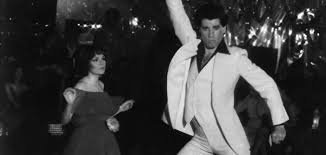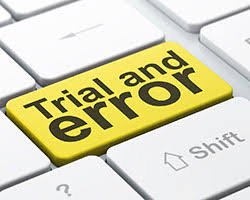5.3 - Dancing Dangerously
The Dance Continues
In the last segment, I referred to the life of faith as Dancing with the Creator, which prompted my friend Pete Stone to recommend Richard Rohr's The Divine Dance. I’ve pulled two quotes from the book that paint a beautiful picture of the dance when read together. He says, “The energy in the universe is not in the planets, or in the protons or neutrons, but in the relationship between them,” and “God for us, God alongside us, God within us.”
The energy is not in me but in the active relationship between the creator and me, in the dance itself. In my daily life, God is the music, my dance partner, and the sense of rhythm within me. The universe's energy is apparent only as I join the dance, allowing it to flow to me and through me. The internal signs of being “in step” with the music and my partner are peace and joy; the external signs are acts of grace and love.
From Mystical to Mysterious to Dangerous
It sounds somewhat mystical, doesn't it? It is supposed to. Everything about God and our relationship should have a healthy dose of mystery, even a touch of danger. Think about it. A well-mannered God who can be placed in a box, albeit on a pedestal, could hardly elicit worship from us. Why that God could scarcely hold our attention!
This is not the God in John's story of Jesus or the Father he follows. No! His God burst onto the scene as a bright light shone in the darkness, bringing everything into being. This is the one asking us to dance, follow closely, and love dangerously. Remember that many disciples who followed Jesus feared being excommunicated or arrested. It was so dangerous that many walked away.
For example, Jesus asked us to:
Risk our money and reputation to care for the injured victim along our path,
Leave our flock and go alone into the darkness to search for that one lost sheep, and
Invite "the least of these" into our home for a banquet.
This dangerous dance is designed to move us beyond our tiny two-step routine of self-preservation into the whisk and quick wing of a new consciousness that recognizes that all life is connected and eternal.
Viewing my life of faith in this light makes me more closely relate to the blind and deaf in this following segment of scripture.
It makes me ask myself, “Am I a lonely teenager back in my bedroom, solo dancing to a stack of 45s? Or perhaps Cinderella is going through each day's dismal duties with a heart craving to dance at the Ball? Or a would-be knight like Don Quixote battling only the windmills of my mind, the imagined threats to my security?” Let’s look at Chapter 5, verse 25.
Urgency and Accountability
25 “Very truly, I tell you, the hour is coming and is now here when the dead will hear the voice of the Son of God, and those who hear will live. 26 For just as the Father has life in himself, so he has granted the Son also to have life in himself, 27 and he has given him authority to execute judgment because he is the Son of Man. 28 Do not be astonished at this, for the hour is coming when all who are in their graves will hear his voice 29 and will come out: those who have done good to the resurrection of life, and those who have done evil to the resurrection of condemnation.Two themes jump out of this passage: urgency and accountability. Urgency. Jesus challenges me to choose: “The hour is coming and is now here, Fish or cut bait.” The music begins, and he says, "Let's dance."
Accountability. A master evaluating his apprentice's work says, "The waiting is over. The time is now. Let me see your work." We may ponder over spiritual matters for a long time, but there comes a time when we must take action. Overthinking and perceiving spirituality as something yet to happen is a common yet self-defeating practice.
In Theodore Roosevelt’s words, “It is not the critic who counts; not the man who points out how the strong man stumbles, or where the doer of deeds could have done them better. The credit belongs to the man who is actually in the arena.”
The dance doesn't start when I die. All spiritual growth occurs now, in the present moment—there is no other time, and in my arena - there is no other place. The question arises: Am I actually in the arena of my own life?
Here’s a brief, 10-minute guided meditation on the power of right now. It’s on the YouTube Channel “Great Meditations” and is called “Quiet the Mind; Becoming Present.” I hope it will be helpful.
Moving Beyond Myself and My Tribe
30 “I can do nothing on my own. As I hear, I judge, and my judgment is just because I seek to do not my own will but the will of him who sent me.John wants me to hear Jesus explain how healing the lame man on the sabbath could be “lawful.” Think of the father-son or master-apprentice relationship. It is likely that each of the men in his audience had been sent by his superior to do a job before and would relate to this.
For instance, when you were in elementary school, and your teacher gave you a note to take to the principal's office, you did the task without question.
If someone inquired about your actions, you would respond, "I'm doing this for my teacher." It's that simple.
But how does that make it lawful? Jesus is saying that the one who sent him was the same one who gave the law to Moses in the first place. He has shifted the focus of obedience from the external law to his internal consciousness, but it’s the same source and, therefore, legal.
To them, God was the creator of the universe, the protector of their tribe, and the source of moral and ethical perfection. Their leader, Moses, put the ideas behind this morality into words in the form of the law. Over time, this law began to be worshiped more than the creator and his original ideas.
The people in our story objectified and honored the law; Jesus internalized and performed it. That's why he could say, "I seek to do not my own will but the will of him who sent me.” And it's why he continually questions their motives more than their actions, like lust in the eyes and hate in the heart. Remember?
He is asking me to make the same paradigm shift: Move beyond my concerns for personal security and tribal identity, realize who we really are, and share in his abundant life. John wants me to see the vision and character of my creator. What’s more, only as I make time for this vision and internalize it will I hear his voice and do his will from an internal motivation instead of an external requirement.
From the Inside-Out
Can’t I just quit drinkin’, smokin’, and playin’ pool? Can’t I just go to church and try to do good things? Nope. That's been done before, and it leads to a life of trying to figure out, as Bob Seger sings, "What do you leave in, what to leave out?” It will wear you out! The life we were created to have flows from our true identity, producing peace and spreading joy. It's what we've always known but seldom experienced. Or is it just me?
Let’s demystify it a bit. From the website Faster Capital: Internalization is a crucial part of the ethical decision-making process. Personal values and beliefs are a foundation for this process, and the way that we internalize our values and beliefs can have a significant impact on the decisions we make. Internalization refers to the process of making something a part of oneself. When it comes to morality, internalization occurs when an individual adopts moral values and beliefs as their own, and they become part of their identity. As a result, their moral decisions are guided by their personal values and beliefs rather than external factors.
Or, we could mystify it more with Pierre Teilhard de Chardin's words: " We are not just human beings experiencing spirituality, but rather spiritual beings having a human experience.”
Either way, we must recognize that we are created with intelligence and creative energy to bring our thoughts to life. With this understanding, we can become more committed to living by our internal spiritual guidance rather than external rules or physical instincts.
Ready, Set, Shift?
The idea of a paradigm shift is often oversimplified as a one-and-done, one-time event. However, I’m beginning to see that this “rebirth” must have a gestation period within the consciousness. Only then can one decide whether to change one's ways of operating—from external stimuli focused on self-preservation to internal stimuli based on personal liberation. The transformation then becomes a daily process of trial and error as one learns and grows, like crawling and then walking.
That’s what Jesus meant by "repent and follow me.” He said, “Change your thinking, your operating system, and learn to do as I do.” In the words of Dallas Willard, Repentance is rethinking your thinking to change how you’ve been thinking and acting.
The when, where, and how is unique for each individual. For me, this exploration of faith reignited in the dark and barren womb of grief over the loss of our granddaughter, Millie, in 2021. For Peter, it came through the loss of his Rabbi, Jesus. For both of us, it traveled through the valley of unbelief, stopping for a while in denial. Am I comparing myself to the apostle Peter? No, only in our deep despair when God didn't do what we thought he would.
Have you been there too? If so, the only way I found to keep moving forward was to sit, allowing the silence to disassemble my unworkable faith and start the lifelong reclamation project of an evidence-based faith.
As I was writing this, it dawned on me that everyone lives a life of faith, faith in something. Choose wisely.
Key Takeaways:
Jesus asked others to follow closely and love dangerously.
Our spiritual life is always happening now - right now.
We can envision ourselves as the world tells us we are or were created to be.
Each person's journey is unique; most people are about where they should be.









